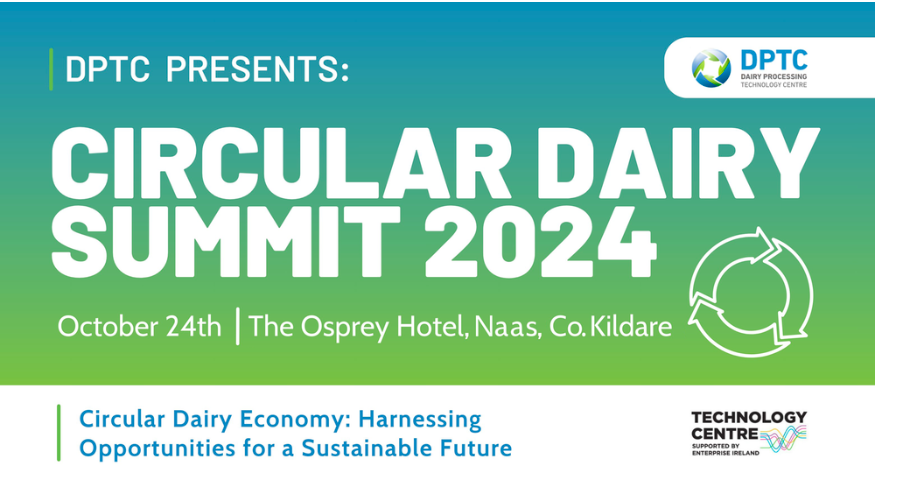RGFI received leadership recognition from the Business Post this month, as CEO PJ McCarthy,…
RGFI commissioned KPMG Report says low carbon, renewable gas scheme presents strategic national opportunity.
Call on Government to support a scalable, agri-led bio-methane “green gas” industry.
Potential savings of 2.6m tonnes CO2pa.
Research conducted by KPMG with industry, gas consumers and the agricultural sector concludes there is a compelling business case for the establishment of an indigenous Irish, biomethane industry based on gas produced largely from agricultural waste.
The KPMG Report was presented to Government this week by the Renewable Gas Forum of Ireland (RGFI) which called for a clear national policy commitment to developing a long-term sustainable biomethane industry on a phased basis from 2020, which it says will support Ireland’s decarbonisation objectives and boost the rural economy.
Benefits highlighted by the KPMP Report include:
- Complements the Government’s decarbonisation policy – saving 2.6m tonnes of CO2 pa by 2030
- Significant decarbonisation of heat across residential, commercial and agricultural sectors; (most cost-effective way of decarbonizing the heating of over 670,000 homes and 27,000 businesses, located on or close to the existing gas network);
- Reduces Ireland’s reliance on fossil fuel-based energy imports, improve Ireland’s security of energy supply and storage;
- Significant wider economic benefits including the diversification and stimulation of the rural economy and job creation of over 3000 jobs;
- Agriculture is the optimal model for the roll-out of an Irish AD biomethane industry – using agricultural organic matter and dedicated crops – ie grass silage, clover and beet.
A robust AD bio-methane industry will provide:
- security and certainty of demand for many farmers – with capacity to produce more grass, satisfying both the animal feed requirement and the new AD market – specifically the utilisation of 4.8m tonnes of slurry and 5.8m tonnes of additional grass silage;
- assistance in decarbonising Ireland’s agriculture supply chain, product life cycle, further supporting the global marketing of Irish agricultural produce. This will be measurable and verifiable using the Green Gas Certification Scheme,
- improvements in farm practices, land management including better slurry management and chemical fertiliser displacement.
“Government is committed to producing energy from renewable sources and while the focus to date has been on wind and solar, there is now a compelling, independent case to include renewable gas in the forthcoming National Energy and Climate Plan 2021-2030.
Gas Network Ireland (“GNI”) “Vision 2050” reports that a decarbonised gas network can offset national emissions(including agriculture) by 1/3 by 2050. Specifically, by replacing 12% of current natural gas consumption with low carbon renewable gas, produced largely from agricultural waste and grass, Ireland can save 2.6m tonnes of CO2 per annum, supporting our decarbonisation targets and creating over 3000 jobs for rural Ireland by 2030” said PJ McCarthy, Chairman of RGFI today.
KPMG says that in order to realise this vision, approximately 227 agri-led anaerobic digestor (AD) plants, along with a number of larger food and commercial waste plants will need to be built by 2030 , requiring a capital investment of c€1.5 billion, supported by appropriate Government support. The proposed ramp-up is in line with Northern Ireland where c60 AD plants were built in the first five years of the industry being developed. GNI has outlined its support for renewable gas and its ambition to invest in a network of gas injection points and related infrastructure to support the growth of the sector.
“A scalable phased deployment, localised commercial model and dedicated funding is recommended to support a growing and maturing AD biomethane industry. If implemented, an agricultural industry led biomethane sector has the ability to align with a large number of Government policies and objectives including decarbonisation, the Government’s Action Plan for Rural Development, the Nitrates Action Plan and DAFM’s Code of Good Agricultural Practice, ” said Russell Smyth, Partner, KPMG.
Within the food and pharma industries, renewable gas biomethane is the only viable and available alternative for many businesses to decarbonise their processes without impacting their overall operations.
Mr Donal Dennehy, Director of Danone Ireland, said “As a user of natural gas, we can make an immediate switch to biomethane, which would deliver our environmental and climate benefit targets at lowest cost with least disruption. The supply of renewable biomethane is essential to Danone Ireland in the context of the reduction of reliance on fossil fuels, GHG emissions mitigation, competitiveness and improvement in the sustainability of our processing and products”.
For further information please contact:
Geraldine Kearney – 087 2319430 or pr@renewablegasforum.com
For Executive Summary of this Report see https://www.renewablegasforum.com/
RGFI
RGFI is a not for profit industry forum representing all sectors of the renewable gas industry from producers through to end users. RGFI represents some of Ireland’s largest energy users. In 2019 RGFI commissioned KPMG to conduct the integrated business case through consultation with stakeholder from the sectors of the full supply chain of renewable gas.
What is Renewable Gas?
Renewable gas comes from a range of sources with the most commonly available being bio-methane. Bio-methane is produced through a process known as Anaerobic Digestion (AD), which utilises organic materials such as food wastes, sludges and agricultural feedstocks to produce a gas which can be directly substituted for natural gas.
AD has been widely adopted in Europe -specifically the UK, France, Germany and Scandinavia as well as in the US where Governments are supporting industry and agriculture to develop this sector. There are 600 AD plants in the UK and over 17,000 across Europe, which are typically operated by farmers, and input agricultural wastes, manures, catch / rotation crops and additional crops like grass, maize or beet to produce a carbon neutral, renewable gas.




This Post Has 0 Comments